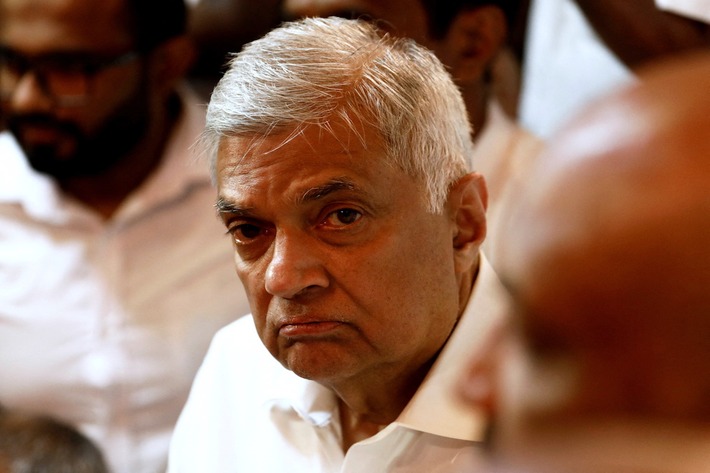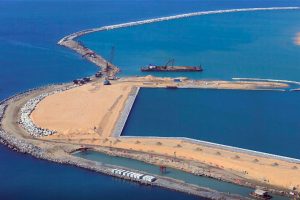Sri Lanka is renegotiating terms of a yuan swap deal with China worth $1.5 billion to fund essential imports because the country will need $5 billion over the next six months to ensure basic living standards, the prime minister said on Tuesday.
The government needs about $3.3 billion for imported fuel, $900 million for food, $600 million for fertiliser and $250 million for cooking gas this year, Prime Minister Ranil Wickremesinghe told parliament.
The island nation’s worst economic crisis in seven decades led to a shortage of foreign exchange that stalled imports of essential items such as fuel, medicine and fertiliser, provoking devaluation, street protests and a change of government.
The central bank has estimated the economy will contract by 3.5% in 2022, Wickremesinghe said, but added that he was confident growth could return with a strong reform package, debt restructuring and international support.
“Only establishing economic stability is not enough, we have to restructure the entire economy,” said Wickremesinghe, who is working on an interim budget to balance battered public finances.
“We need to achieve economic stability by the end of 2023.”
The Indian Ocean nation of 22 million is negotiating a loan package worth about $3 billion from the International Monetary Fund, in addition to help from countries such as China, India and Japan.
ALSO SEE: How Sri Lanka Spiralled Into Crisis And Who is Helping Them
Bid to Rejig China Swap Deal
Sri Lanka is also renegotiating the terms of a yuan denominated swap worth $1.5 billion agreed with China last year, the PM said.
The initial terms provided that the swap could only be used if Sri Lanka maintained reserves equivalent to three months of imports.
But with reserves now well below that level, Sri Lanka has to request that China reconsiders that requirement and allows the swap to proceed, Wickremesinghe said.
UN to Launch Worldwide Appeal
On Tuesday, the cabinet approved a $55-million credit line from India’s Exim Bank to fund 150,000 tonnes of urea imports – a critical requirement as supplies have run out during the current cropping season.
“Farmers do not need to be worried about not having inputs for the next season,” cabinet spokesman Bandula Gunawardena told reporters, estimating that 150,000 tons of urea would be needed for the next cultivation cycle.
While food inflation of 57% is partly driven by higher global commodity prices, a depreciated currency and low domestic production, it is estimated that yields from the next harvest will be halved by the lack of fertiliser.
The United Nations is set to make a worldwide public appeal for Sri Lanka on Wednesday, and has pledged $48 million for food, agriculture and health, Wickremesinghe said.
Wickremesinghe, who is also finance minister, will unveil an interim budget next month that he said aims to slash government expenses and looks to increase annual welfare spending to $500 million from about $350 million.
• Reuters with additional editing by Jim Pollard
ALSO SEE:
Sri Lanka Counts on China Loan Amid IMF Talks – FT
World Bank Preparing $500m Aid Package, Sri Lanka Says
UN Group Pitches Basic Income Proposal to Sri Lanka – FT
Sri Lanka Bondholders Face Painful Debt Restructuring Hit























